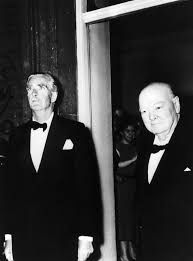The Anglo-Iranian Oil Company was the most important British enterprise abroad, and the major British interest in the Persian Gulf. In this chapter attempts will be made to explain how the Conservative Government managed to bring the nationalisation crisis to an end. The Handling of the Crisis Worried about the spread of the Soviet influence in the area, or a Communist coup in Iran, the United States pressed British to make concessions to settle the oil dispute with Iran. 'The most desirable solution would be for AIOC and the Government of Iran to negotiate a settlement between themselves,' was...
Read More
BRITAIN AND THE AFTERMATH OF THE ANGLO–IRANIAN OIL COMPANY’S CRISIS
As a result of its crucial strategic position and its huge oil reserves, which led to the establishment of the Anglo-Iranian Oil Company, Iran became a vital British interest. The Anglo-Iranian Oil Company was the most important British Enterprise abroad, and the major British interest in the Persian Gulf. The Ang1o-Iranian Oil Company was one of the world’s major oil companies and the 'jewel' in the crown of the British petroleum industry. Until the middle of the twentieth century the Persian Gulf had a vital role for Britain’s energy supply and economic interest. In 1951 the Iranian Government nationalised the...
Read More
THE ANGLO–IRANIAN OIL COMPANY’S CRISIS MORE CRUCIAL THAN THE SUEZ CANAL CRISIS: BRITISH LIMITATION: NOT LEARNING A LESSON!
In 1951 the Anglo-Iranian Oil Company, the most important British enterprise overseas, and the main British interest in the Persian Gulf, was nationalised by the Iranian Government. The nationalisation of the Anglo-Iranian Oil Company took place when the British Labour Government was still in power. The nationalisation of the Iranian oil confronted the Labour Government with a dilemma. On the one hand the Labour Government of 1945-51 had nationalised more industries at home than any previous government in British history: additionally the Labour Party had a tradition of colonial doctrine of opposition to 'colonial acquisition'. On the other hand, however,...
Read More
THE NATIONALISATION OF THE ANGLO-IRANIAN OIL COMPANY, AND THE ENDING OF BRITISH PARAMOUNTCY IN THE MIDDLE EAST: A BRITISH DEBACLE, AND THE BIRTH OF BRITISH PETROLEUM COMPANY LTD.
Convalescing from his operation on a cruise between the Greek islands, Eden heard the news of the final result and said, I slept better that night. The London Times saw the cause of Musaddiq's fall in 'dissatisfaction at his failure to make even a show of carrying out his promises of social, administrative and economic progress.' ¹The Spectator reacted by saying about Musaddiq, 'he rose to power with little but a colourful personality and fanatical determination.' ² The Lord President, Lord Salisbury, in a brief statement told the Cabinet there was a reason to believe that, if the military...
Read More
SIR ANTHONY EDEN AND DELUSION OF GRANDEUR: IRANIAN OIL CRISIS EXPOSED BRITISH WEAKNESS: SUEZ WAS ONLY AN UNDERLINE THAT BRITAIN COULD NOT ACT MILITARILY WITHOUT AMERICAN CONCURRENCE.
Iran was never a British colony, nevertheless it was seen as something of an important concern to Britain because of the oil supplies and because of the Russian position, and so Britain felt she had to make things happen there although strictly speaking she had no colonial role to play. The fact that Iran had international dimensions made it rather difficult for Britain to handle the crisis since she could not claim that it was within her legitimate right to do so, and yet clearly she felt it was her legitimate right to do so. Britain still saw the...
Read More





